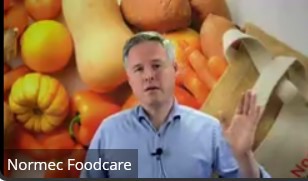Every now and then, there is startling news: some fruits and vegetables have a plant protection residue level that is too high. This causes unease among consumers; everyone wants their food to be safe to eat. But when is it safe?
Last week, Groen Agro Control recently held an online mini-symposium about residue analysis. Organizers Jelger de Vriend and Michel Witmer explained that the European Union had set maximum residue limits (MRL). Groen Agro Control, part of the Normec group, provides quality solutions in the fruit and vegetable sector.
Risks
The EU determined these limits by doing lengthy technical research that included assessing the potential risks to consumers. MRLs are based on using a concentrated plant protection product for an extended period without risk to health. All EU counties use the same MRLs. Then there is the Acute Reference Dose (ARfD).
That refers to the concentration of a plant protection product that could pose immediate health risks. This is different for each country and takes various aspects into account. For example,  how much of the product is consumed as part of the national diet, which varies from country to country and is important as it can determine whether products are fit for consumption or should not be allowed on the market.
how much of the product is consumed as part of the national diet, which varies from country to country and is important as it can determine whether products are fit for consumption or should not be allowed on the market.
Photo right: Michel Witmer
Specifications
Besides these legal requirements, the retail sector - by far the largest fruit and vegetable buyers - has demands too. Many European supermarkets often have more stringent requirements that differ from those legally stipulated. "We can report for about 20 retailers based on their specific demands," says Michel. He adds that some supermarkets' requirements are very strict.
Retailers also have additional specifications like a maximum crop protection amount on the products. These strict demands put quite a strain on fresh produce production, says Michel. He wonders if it will be possible to keep growing produce with these high-quality specifications, especially given increasingly unpredictable weather conditions.
Entire chain
All these legal and buyer regulations mean residue analysis of fruit and vegetable is a vital part of the fresh produce supply chain's food safety policy. It makes monitoring the products and residues increasingly important, something that involves the entire chain, says Michel.
produce supply chain's food safety policy. It makes monitoring the products and residues increasingly important, something that involves the entire chain, says Michel.
Photo right: Jelger de Vriend
Certain links in the chain might use crop protection agents without knowing what has been applied to the products before and could unintentionally exceed the prescribed limit, which could be problematic.
"This can be an issue for, for example, organic citrus that's packaged on the same conveyor belt as conventional citrus. The wax used for conventional lemons and oranges could transfer to the organic citrus. So then you can have a perfect organic product, but with problematic packaging," explains Michel.
Plan
But, for instance, disinfecting farmland or crops combined with post-harvest treatment can lead to MRL being exceeded. That's why Groen Agro Control recommends creating a treatment plan that covers the entire chain - from pre-cultivation to packaging.
The links in the chain can then communicate with each other and prevent the limits from being exceeded. It also ensures more effective cost control and better product marketability. And, perhaps most importantly, a joint plan provides more control over managing food safety requirements.
Groen Agro Control holds separate introductory and Masterclass Residues courses every year. The mini-symposium about residue analyses is available here, if you are interested.
For more information:![]() Michel Witmer
Michel Witmer
Groen Agro Control
1 Distributieweg
2645 EG, Delfgauw, NL
Tel: +31 (0) 152 572 511
Email: m.witmer@agrocontrol.nl
Website: www.agrocontrol.nl
